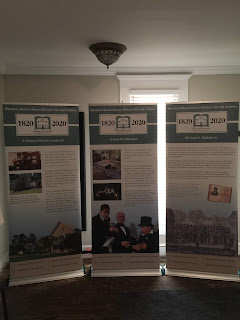
In partnership with the American Antiquarian Society and with support from Mass Humanities, Hawaiian Mission Houses presented a weeklong program entitled "Encountering History using Innovative and Disruptive Narratives."
It was a humanities discussion panel series that was held in four locations: Phillips Academy Andover; Williams College; the American Antiquarian Society; and the Congregational Library at 14 Beacon Street.
The discussion panels explored new texts and current research in response to the bicentennial of the Congregationalist mission to the Sandwich Islands.

The discussion panels of recognized humanities scholars, including Dr. Noelani arista who traveled with us all week, were organized around the presentation of "My Name is ʻŌpūkahaʻia," which set the tone into a narrative of Hawaiian agency.
The best panel was at the American Anitquarian Society, in Worcester, MA, where the brilliance of the questions was only second to the brilliance of the answers.
It was here that Dr. Arista stated that the near exclusive use of English sources in the writing of Hawaiian history and the lack of use of Hawaiian language sources, a source base that is the largest archive of indiginous language in the world, has resulted in a historiography that would be like if "the history of the American Revolution was only written from French sources."
The best thing about the week of panels were the scholar dinners. These had been written into the grant, but only happened at Williams College and the Congregational Library.

Before the panel at Williams we went to dinner at the Williams Inn. Food and discussion was great, a little combative, and the bill was $314.00.
I only thought this dinner cost a lot until we went to
Dolce Vita in Boston. Someone on the panel knew the owner. Great Italian food just kept coming out of the kitchen. I picked up a tab of $585.00.
This was a great week, with great discussions, and great places.

















